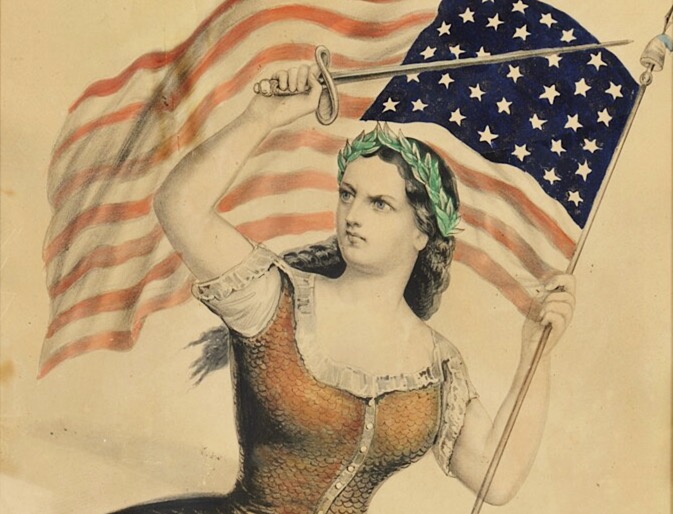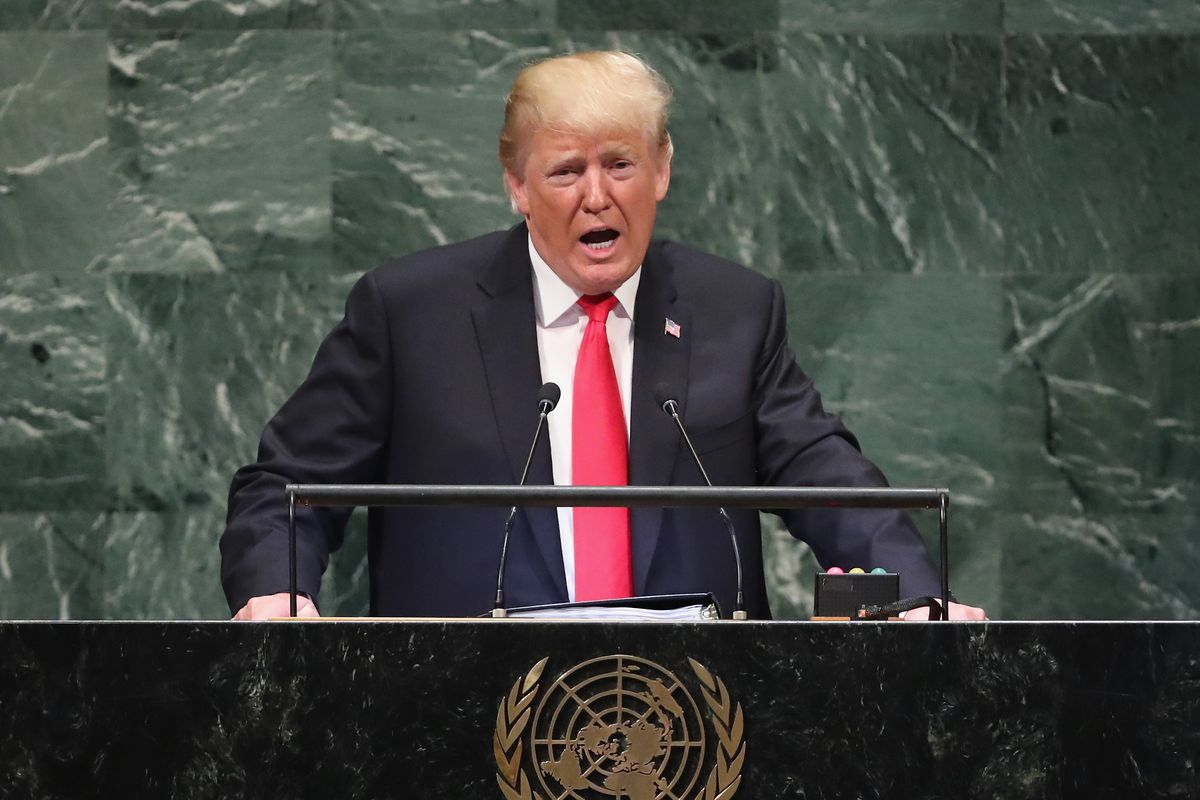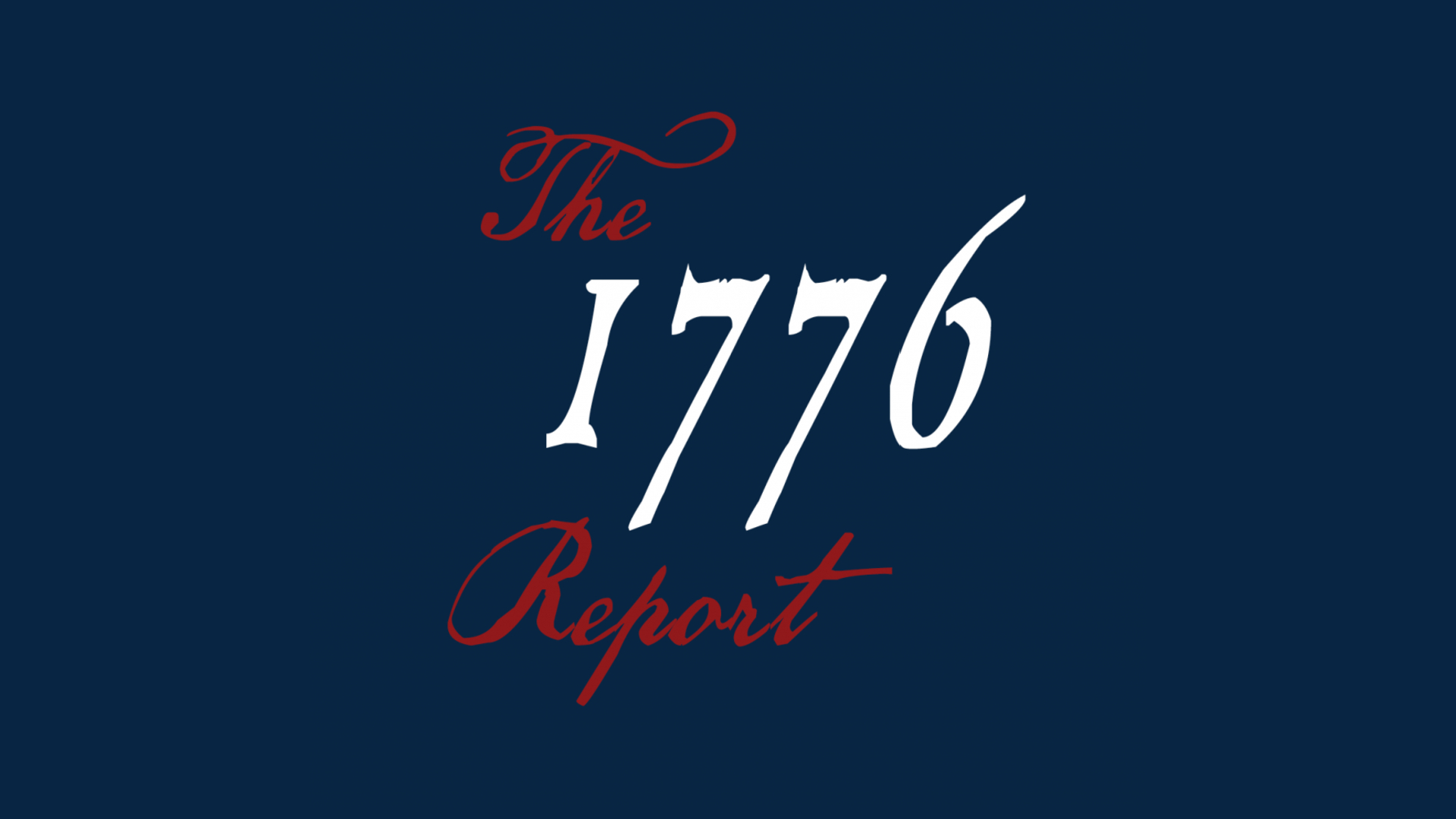Through identity politics and political correctness, today's multiculturalist enforcers seek to erase and replace America. Together, we must save the Union once again.
End Nationalism, End America

Today’s globalist dogma is incompatible with our country’s survival.
Twenty-First-century progressive liberalism sees the American nation as a problem. There are three core points of contention: 1) the concept of nation-state sovereignty; 2) the actual American nation itself—its culture, history, and people; and finally, 3) the prospects for constitutional republican self-government in America.
From Democratic Sovereignty to Global Governance
For decades, mainstream liberal foreign policy experts who have served at the highest levels of American government (John Kerry, Strobe Talbott, Harold Koh, Anne-Marie Slaughter) and in the academic world (G. John Ikenberry, Robert Keohane) have advocated transferring aspects of national sovereignty from nation-states, including ours, to global institutions. Indeed, President Obama himself told the United Nations General Assembly in 2016: “We’ve bound our power to international laws and institutions—I am convinced that in the long run, giving up freedom of action—not our ability to protect ourselves but binding ourselves to international rules over the long term—enhances our security.”
Harold Koh, the State Department’s chief legal advisor under Obama, recommended that U.S. courts “download” international law into American law, stating that it is “appropriate for the Supreme Court to construe our Constitution in light of foreign and international law.” Anne-Marie Slaughter, an international lawyer who served under Secretary of State Hillary Clinton, argued that nations should cede a degree of sovereign authority “vertically” to supranational institutions such as the International Criminal Court. She declared that transnational networks “can perform many of the functions of a world government—legislation, administration, and adjudication—without the form,” thereby creating what the American Bar Association has endorsed as the “global rule of law,” with transnational law logically superior to the U.S. Constitution.
Liberal scholars have recognized that global governance is often at odds with democratic self-government. The liberal internationalist argument is that nation-state democracies like the United States cannot be relied upon to develop fair “global rules” because they ignore the interests of non-citizens.
Therefore, in order to achieve “legitimacy,” the “rules” of a “rules-based global order” should be determined by external “epistemic communities” and actors. In other words, decisions should be made, not by democratically elected officials, but by experts (judges, lawyers, administrators, NGO activists) in international law, human rights, gender equity, and on and on.
Anti-American Liberalism
If progressive liberal esteem for the democratic nation-state is low, the mainstream Left’s depiction of the American nation’s particular culture, people, institutions, and mores is even more negative. Liberal unease with American cultural mores has existed for a long time. In the early 20th century, John Dewey decried a ”culture of private pecuniary gain”; in the 1950s, Louis Hartz despaired of what he called a national attachment to “irrational Lockeanism.” Clearly, since the 1960s, liberalism’s campaign against the American nation and society has accelerated.
For the past half-century, progressive liberalism has had a firm grip on the major institutions of American education at all levels, from the poorest elementary schools to elite universities. For more than 50 years, Americans have been educated by liberals who have told them that they are too racist, sexist, xenophobic, individualistic; too attached to their guns, religion, violence, and a glorified version of their history.
Last year, progressivism’s discontent with American society exploded. The steady promotion of multiculturalism, diversity, inclusion, and intersectionality has now morphed into a militant denunciation of the entire American project as “systemically racist,” calling for revolutionary “anti-racist” action.
The flagship of American liberalism is the New York Times. Its 1619 Project is the spearhead of an “anti-racist” ideology which seeks to reshape the American regime. Leading educational institutions, from Princeton University to the American Association of School Administrators, the National Association of Secondary School Principals, the National Council of Teachers of English, and myriad others, have joined the “anti-racist” crusade.
To be sure, there is a continuum of liberal opinion. But the direction of mainstream liberalism’s relationship with American society is clear enough. Rather than a whole-hearted embrace of what most Americans (and previous liberals like Harry Truman and Hubert Humphrey) once proudly called the “American Way of Life,” there exists in liberalism today, at best, an ambiguity and an awkwardness about America.
Replacing the Country
Today, liberals seem rather embarrassed by overt displays of patriotism. Popular celebrations of America appear somewhat unseemly and crude, particularly if enacted by people whom upper-middle class liberals do not consider as well-educated or informed as themselves.
Most importantly, it is evident that mainstream professional liberals have made a political decision to assert that American institutions themselves are “systemically” or “structurally racist.” This attitude has consequences, because it devalues both our culture and our people. It cannot help but undermine patriotic attachments among liberal elites, activists, and rank-and-file citizens.
The political scientist Eric Kaufmann conducted a revealing quantitative survey of liberal attitudes toward America in May 2020, just before the George Floyd incident. People who described themselves as either “liberal” or “very liberal” on a five-point scale (from “very liberal” to “very conservative”) were asked questions about American national identity. Seventy-nine percent of “very liberals” (which comprised 40% of all liberals) and 70% of the just plain liberals favored replacing our Constitution.
Fifty-eight percent of “very liberal” respondents, and 44% of plain liberals, supported removing the “four white male presidents at Mount Rushmore, as they presided over the conquest of Native people and the repression of women and minorities.” Significantly, 41% of very liberals and 33% of plain liberals would “move, after an open public process, to a new name for our country that better reflects…our diversity as a people.”
Founding Ideals
As discussed above, both components of the American nation-state—the sovereignty of the state in its relations with other nations and with global entities, and the normative attributes of the nation, our culture, people, history and mores—are unappealing to progressive liberals. Political thinkers from Plato and Aristotle to Montesquieu and the American Founders have long explained that an emotional attachment to one’s political community is necessary for its survival.
This fundamental truth is explicitly stated by James Madison in Federalist #49 and George Washington in his Farewell Address. Republican self-government, American constitutional democracy cannot survive in the long run if large sections among both its elites and general citizenry denigrate the core principles, symbols, and cultural mores of the nation itself.
The argument is made that progressive liberals are the true patriots because they call upon Americans to live up to our founding principles of liberty and equality. This is a lie—it requires reinterpreting our “founding principles” to mean equality of outcomes for racial and gender groups. “Our ideals” are re-engineered to fit radical utopian theories about “systemic racism” and “institutional sexism.” These are the ideals not of American culture and history—of the founders and Lincoln—but of a vaguely formulated race-and-gender-focused neo-Marxism.
American liberalism has lost its bearings. Unless there is a major course correction it will, for the foreseeable future, constitute a major regime challenge to our republican self-government and our American way of life.
The Ideology of Self-Defeat
All of this raises several crucial questions. Why do progressive liberals advocate the subordination and submission of American self-government to global authorities? Why does the Left favor the “fundamental transformation” of the American way of life at home? And what does the Left think will come of these revolutionary changes?
The answers to these questions are likely varied, involving both idealistic and self-interested reasoning. Progressives like to think of themselves as humanitarian “citizens of the world” who don’t “privilege Americans” over others by an accident of birth. They are “caring” individuals who are “above” unsophisticated “nationalist” emotions. They possess a refined sensibility—or, put otherwise, a certain cosmopolitan snobbery that disdains those in fly-over country who “don’t even have passports” (like, for example former House majority leader Richard Armey.)
Since leftists see Americans as too racist, sexist, and war-like, they naturally conclude that subordinating American power to global authority would help mitigate this problem. Fortuitously for the Left, this means power would reside with people like themselves: international lawyers, NGO advocates, and deracinated “global citizens.” At home, as Christopher Caldwell described in The Age of Entitlement, power would shift from elected officials to administrators and judges, because these experts are necessary to enforce equal outcomes for “oppressed” racial and gender groups.
This utopian dream of “substantive” equality for groups, of course, will never be achieved in a free society. Instead the Left’s agenda, if successfully implemented, would mean less freedom and less self-government—it would mean an overall move from republicanism (i.e., American constitutional democracy) towards administrative-judicial oligarchy. That is to say, if given free reign, this new leftism will ironically produce less true liberalism, and less democracy.
The American Mind presents a range of perspectives. Views are writers’ own and do not necessarily represent those of The Claremont Institute.
The American Mind is a publication of the Claremont Institute, a non-profit 501(c)(3) organization, dedicated to restoring the principles of the American Founding to their rightful, preeminent authority in our national life. Interested in supporting our work? Gifts to the Claremont Institute are tax-deductible.
A conservative revolution is in order.
An excerpt from the 1776 Commission's report.




